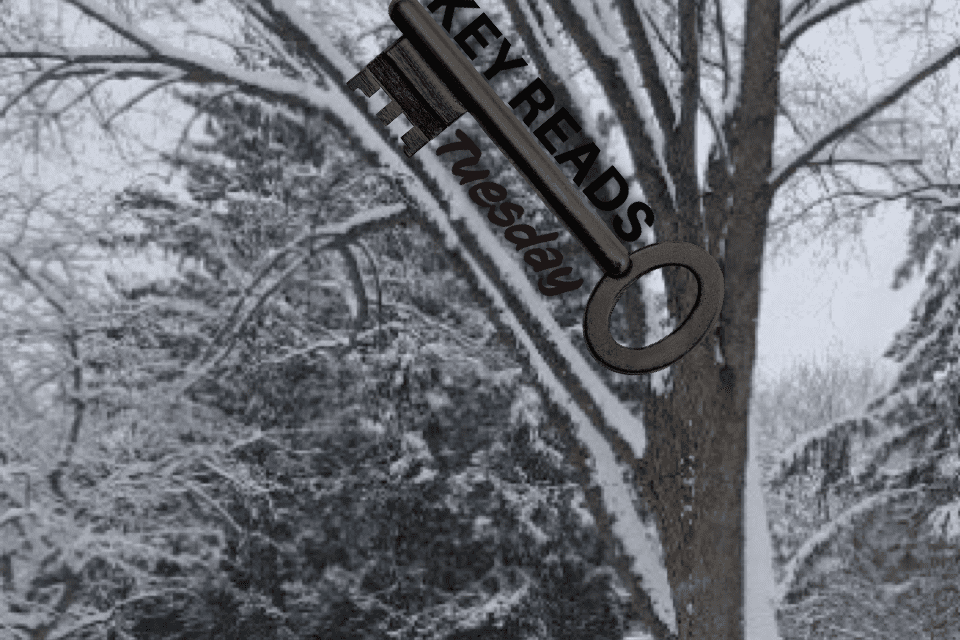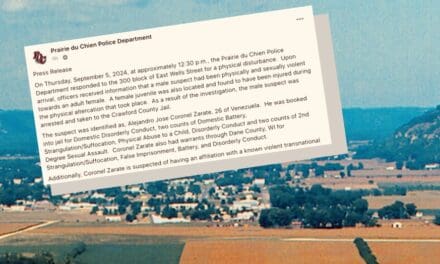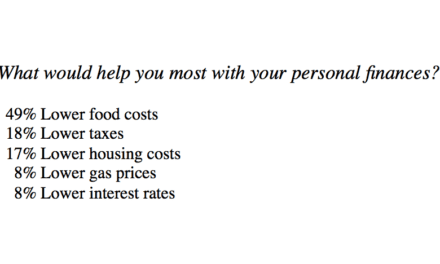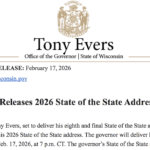
Welcome back.
Well, we know you didn’t win Powerball last night.
No, not just because you’ve opened today’s Key Reads to keep informed about what’s happening in Wisconsin…
We know you didn’t win the big jackpot, because nobody did.
Powerball jackpot climbs to $865 million as long winless drought continues | Associated Press
Since the last winner on Jan. 1, there have been 36-straight drawings without a big winner. It’s tough to win the Powerball jackpot because the odds are so long, at 1 in 292.2 million.
The top prize up for grabs Monday night was for an estimated $800 million.
The Powerball prize has mushroomed at a time when Mega Millions, the other nearly national U.S. lottery game, has become even bigger, with an estimated annuity payout of $1.1 billion.
The next Mega Millions drawing is tonight
Joe Gothard already won the lottery. Madison public schools just hired him as their new superintendent. This after he had just won the national Superintendent of the Year Award for his work at the helm of the St. Paul, MN district. So, one would think this means he has a stellar track record filled with student success. Well, if one would think that, one would be wrong.
Some concerns about incoming Madison schools superintendent Joe Gothard | Isthmus
Let’s start with that Superintendent of the Year award. It’s given out by the School Superintendents Association. The criteria for selection include leadership, communication, professionalism and community involvement. Notice what’s missing? None of the criteria for that award have anything to do with the actual success of students. And, in fact, the criteria the Madison school board developed for selecting the new superintendent didn’t include that either.
That was lucky for Gothard because St. Paul students are not performing well. Numbers available as of August 2023 showed that only 26% of St. Paul third through eighth graders were proficient in math, only 34% in reading and only 24% in science. In addition, only 57% of St. Paul students were showing up in school at least 90% of the time, compared to almost 70% statewide in Minnesota. The St. Paul math scores are even worse than Madison’s, and those lag both the state and national averages.
That could be because of a lack of focus, again, on actual educational achievement.
After Goddard was selected, the Wisconsin State Journal found a quote from a podcast Gothard did regarding building “systemic equity” into a school district. According to the story, among the initiatives he discussed was embedding a graduation requirement for “critical ethnic studies,” which he described as, “a way for students to understand who they are as individuals and to see their place in society through their history, through their lived experiences, how that has intersected with their education, with their community.”
But, at least he’s getting a huge raise in pay and benefits!
Sometimes, government can be responsive to the concerns of the people. We’re reminded again of this bipartisan action in Madison that has righted a wrong that had long frustrated patrons of Wisconsin’s state parks.
Wisconsin state park passes will last for 12 months after purchase starting in 2025 | Milwaukee Journal Sentinel
Yearly passes purchased to enter state parks and trails will last for a full 12 months from the time they’re purchased, instead of expiring at the end of the year….
The DNR estimated the new change would likely cost about $158,000 a year, most of that cost coming from the work needed by state employees.
Currently, park passes are available to residents at $28, or $15.50 for a second vehicle. Nonresident stickers are $38, and $20.50 for the second vehicle. Passes for Wisconsin senior residents are $13. Prices will remain the same.
Other states, such as Minnesota, have instituted similar changes with their state park passes, [State Parks’ Director Steven] Schmelzer said, and have seen gains in revenue.
“I don’t think that there’s going to be a long-term drop in revenue,” he said. “If anything, I think there would be an increase, you know, as people become more used to doing that.”
Wisconsin has 50 state parks and 39 state trails, making up about 156,000 acres of public land. Wisconsin’s park system is one of the few in the U.S. that are mostly self-supporting through the sale of park passes and campsite fees.
The article doesn’t give credit to the bills authors, but kudos to Republicans Senator Rob Cowles and Representative Ron Tussler for spearheading this effort, without their work on this, the law would not have changed.
March is going out like a snowy and rainy lion.
It is not inconceivable Wisconsin sees some severe weather the next few days as well. We won’t be issuing weather alerts, but we will be back tomorrow with another installment of your Key Reads.
Unless we win the lottery.














